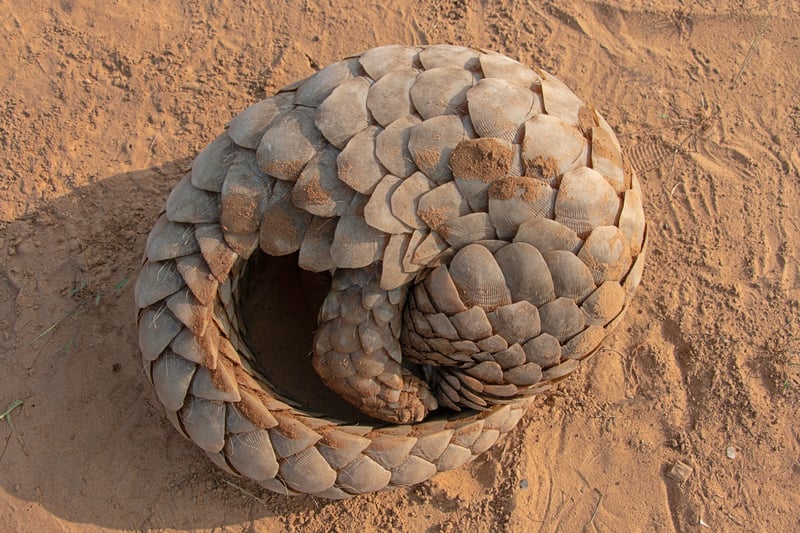A growing concern has emerged over the open sale of endangered wildlife on TikTok, with new research showing that traders in Togo are actively using the platform to advertise bushmeat from protected species.
World Animal Protection (WAP) investigators found that in Lomé, the capital city, sellers are publicly displaying carcasses of endangered animals, including the white-bellied pangolin.
The pangolin is listed as endangered by the International Union for Conservation of Nature (IUCN) and is safeguarded under the Convention on International Trade in Endangered Species (CITES).
The report highlights the increasing use of social media as a channel to bypass global conservation rules. Experts say the trend is creating a digital marketplace that directly threatens species’ survival and undermines international protection efforts.
Dr. Angie Elwin, WAP’s Head of Research, emphasized the urgency of the situation.
“We are seeing social media becoming the new marketplace for endangered wildlife. It is easily accessible and massively unregulated, placing a direct threat to species’ survival,” she said, urging TikTok to uphold its community standards that prohibit wildlife trading.
Between November 2022 and April 2024, WAP reviewed over 80 TikTok videos across two accounts.
Researchers documented more than 3,500 smoked carcasses from 27 protected species, including more than 130 white-bellied pangolins.
Despite an international ban, pangolins remain the most trafficked mammals worldwide due to demand for their meat and scales, widely used in traditional medicine across Africa and Asia.
The content collectively drew nearly 1.8 million views, 53,000 likes, and more than 6,000 shares.
One of the most viewed videos, featuring smoked pangolins, was seen over 216,000 times. Traders often promoted bushmeat by focusing on its “taste” and “health benefits,” making the illegal sale of wildlife appear normalized and acceptable.
Experts warn that the trade carries serious public health risks in addition to endangering biodiversity.
Species such as pangolins, jackals, mongooses, and rodents, all shown in the videos, are known carriers of zoonotic diseases.
Animal welfare concerns are also critical, with reports that pangolins are sometimes boiled alive or burned during slaughter to remove scales.
Delagnon Assou, lead author of the report and researcher at the University of Lomé, explained how social media is reshaping the trade.
“In West and Central Africa, wild meat has long been valued for its taste, cultural importance, and role in local livelihoods. But the rise of social media sales is transforming the scale and nature of this trade. What was once a largely local practice is now reaching audiences far beyond national borders,” he said.
The report urges TikTok and other social media platforms to strengthen the enforcement of wildlife trafficking rules, adopt automated tools to detect illegal content, and run in-app awareness campaigns about endangered species.
National authorities are called upon to support alternative livelihoods, harmonize wildlife laws, and enforce CITES regulations.
Conservation organizations are also encouraged to expand education initiatives to reduce demand for bushmeat and other wildlife products.
“Online platforms are driving new patterns of demand, especially among urban consumers, and posing fresh challenges for enforcement and regulation,” said Dr. Elwin.
“If social media platforms don’t act, extinction could unfold in real-time on their apps. This is a wake-up call. We must ensure platforms like TikTok do not become safe havens for wildlife traders.”
